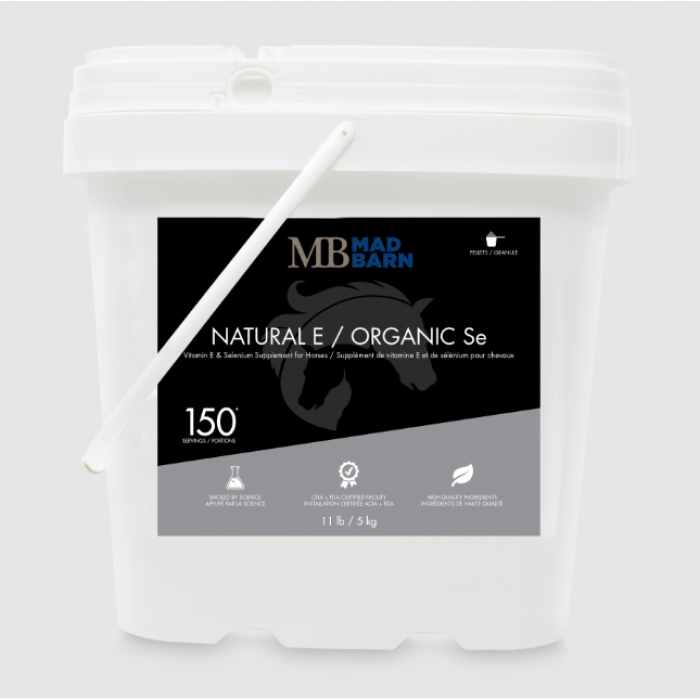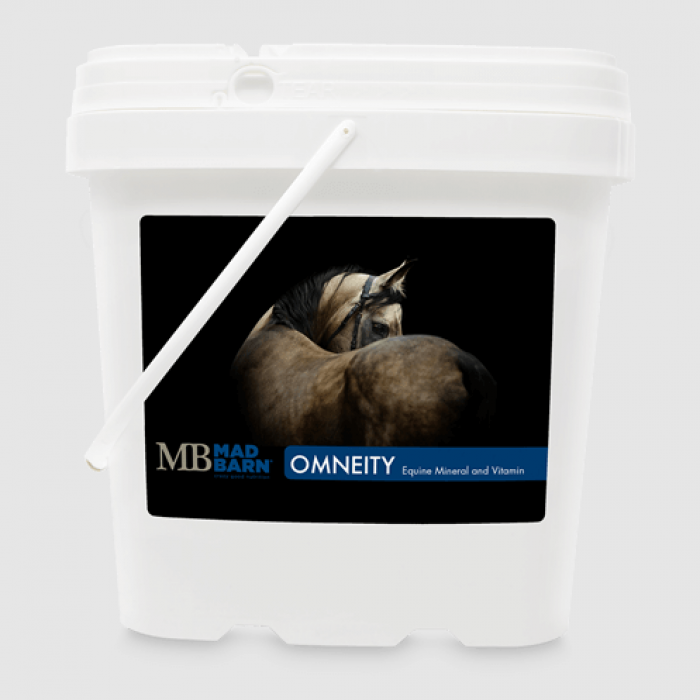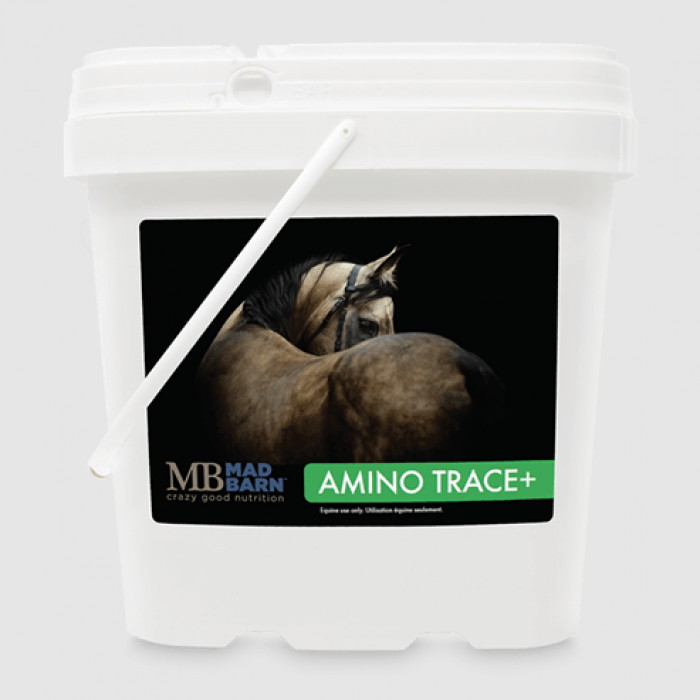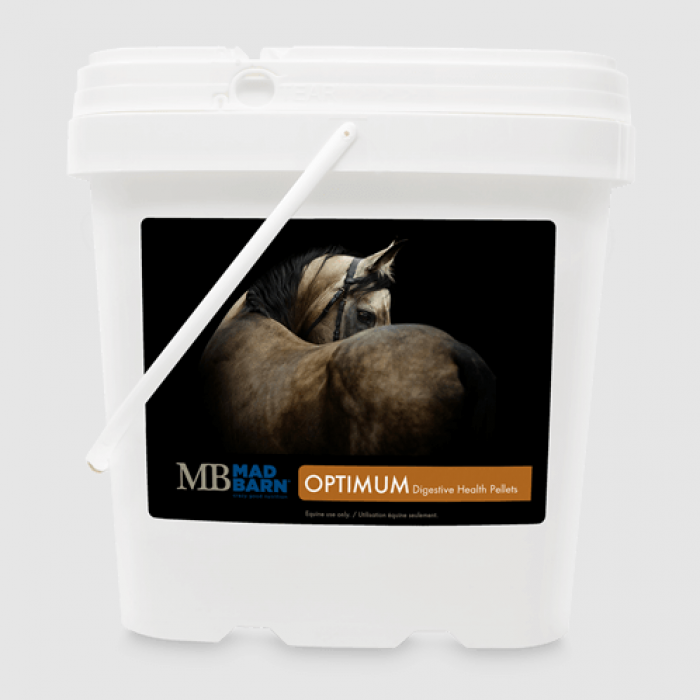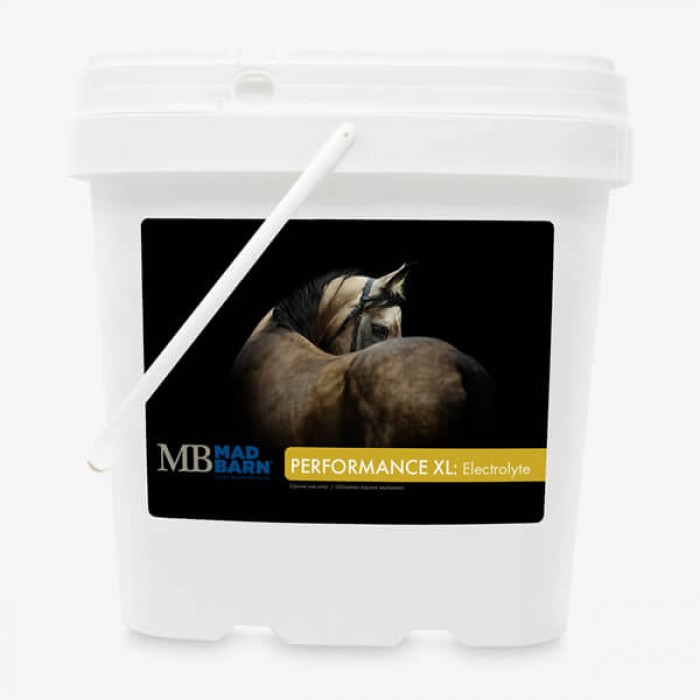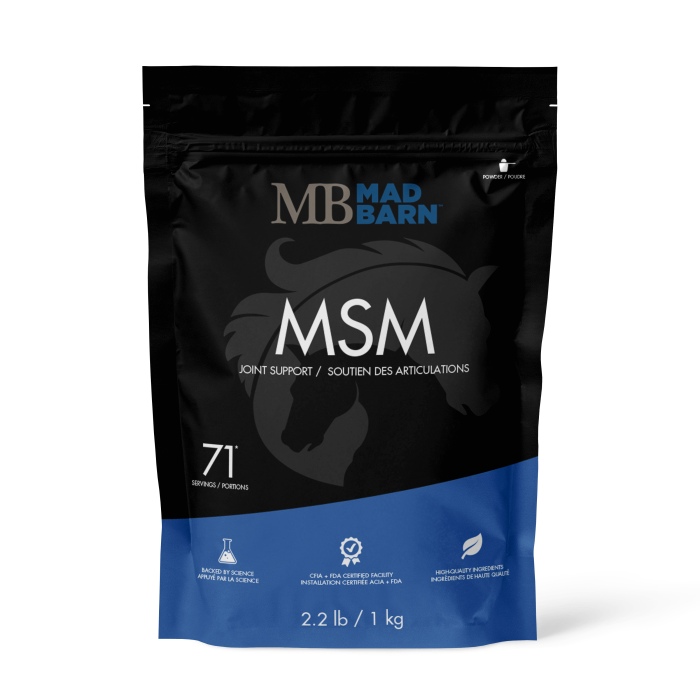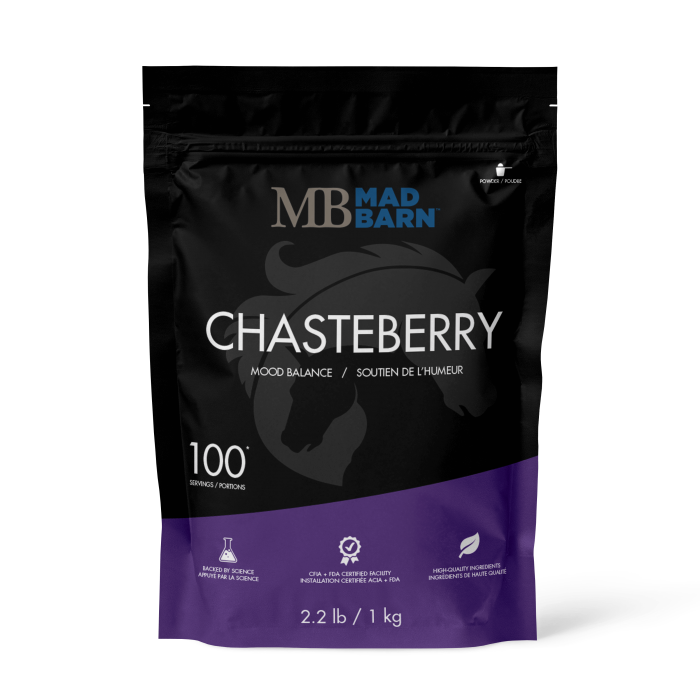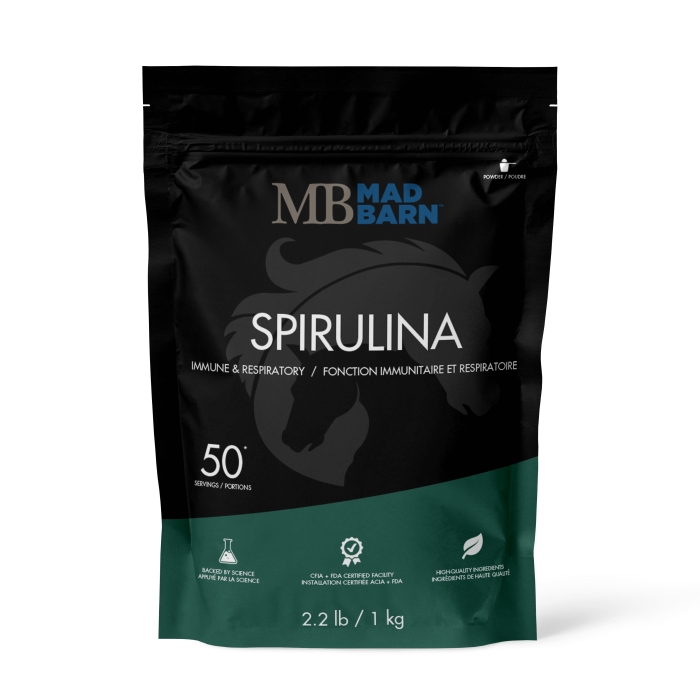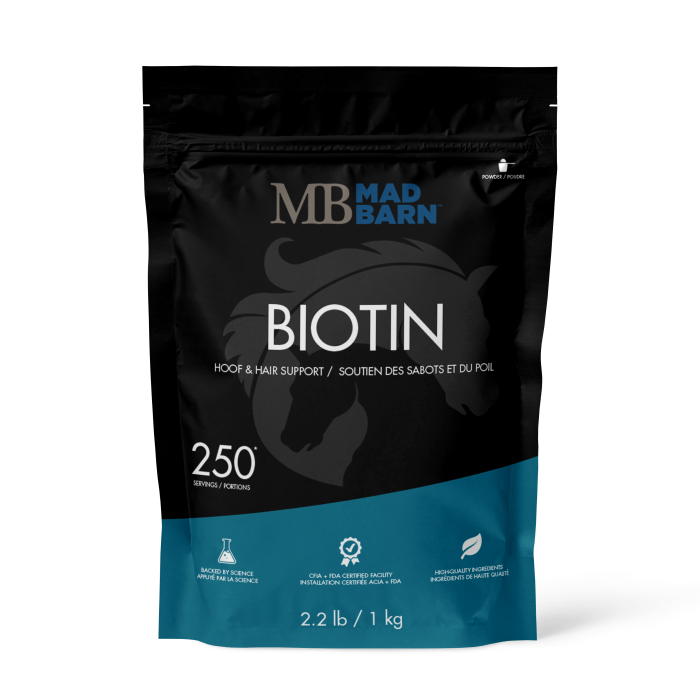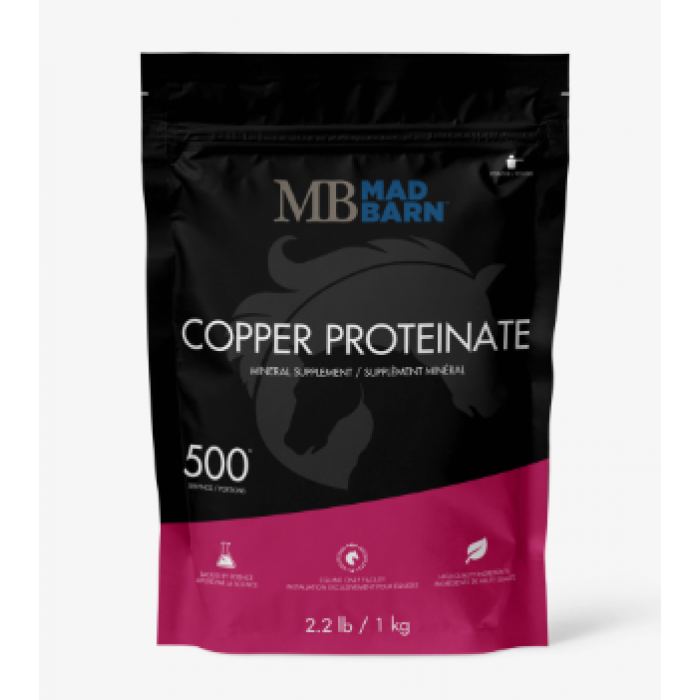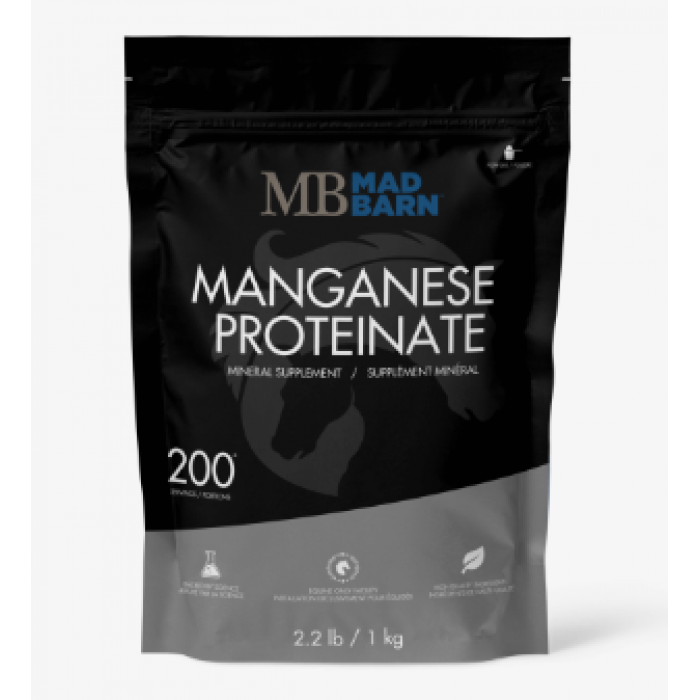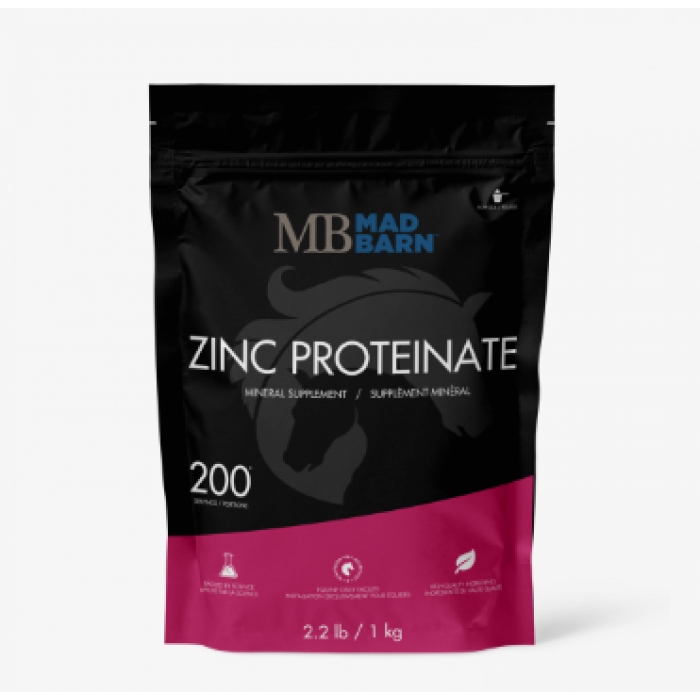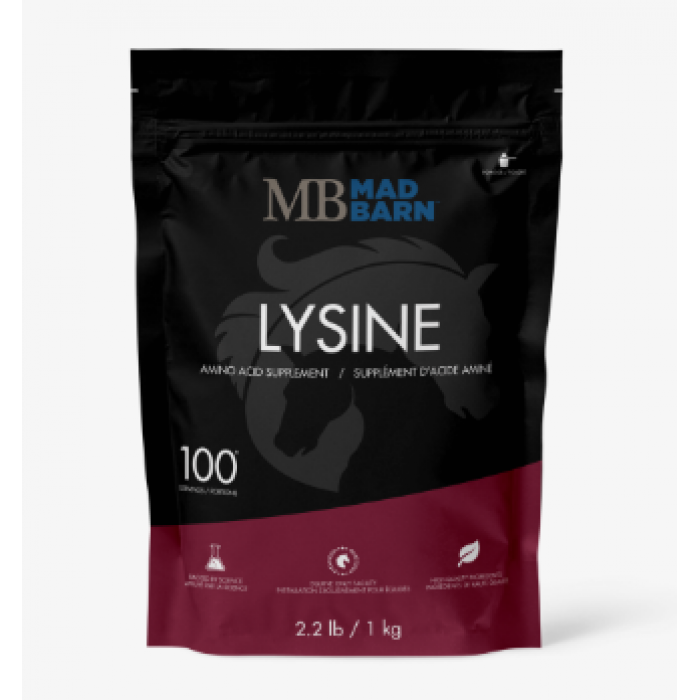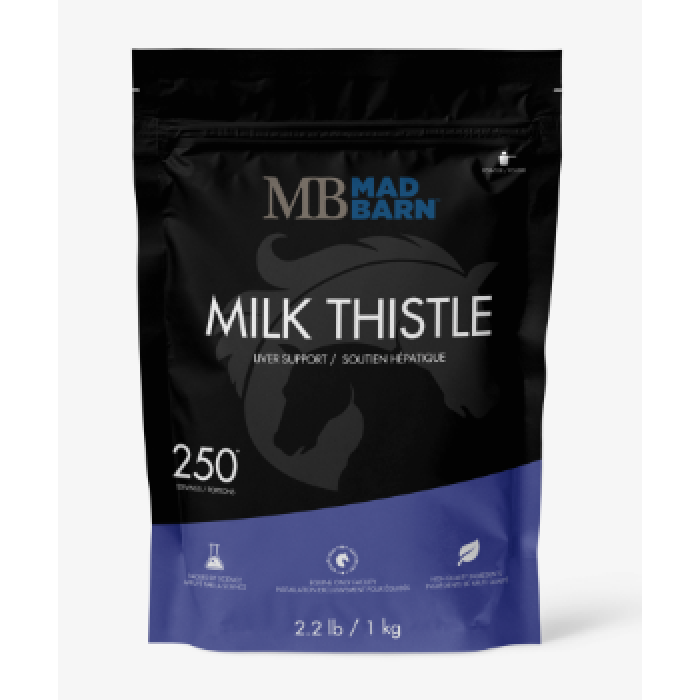|
A pelleted source of supplemental Natural Vitamin E and Organic Selenium to ensure optimal antioxidant status in your horse. Used to support muscles and reduce inflammation.
Mad Barn’s Natural E/Organic Se is a pelleted source of supplemental Natural Vitamin E and Organic Selenium that ensures optimal antioxidant status in your horse.
Natural E/Organic Se contains potent antioxidants that are locked inside a palatable, mint-flavoured pellet.
Vitamin E and selenium functions are interrelated. Inadequate amounts of either nutrient can result in increased oxidative damage to cells.
Natural E/Organic Se contains optimal levels of both vitamin E and selenium to minimize oxidative tissue damage, provided in a highly bioavailable natural form that your horse’s body can better absorb and utilize.
Ingredients: Oat hulls, Yea-Sacc 1026, Natural E, magnesium oxide, Sel-Plex, peppermint, flax oil.
NATURAL E/ORGANIC SE SUPPORTS:
- Antioxidant Defenses
- Overall Well-Being
- Immune Function
- Reduced Inflammation
- Muscle Function
- Recovery from Exercise
- Metabolic Health
- Allergies
- Joint Health
- Digestive Support
DOES MY HORSE NEED EXTRA VITAMIN E & SELENIUM?
Vitamin E is a fat-soluble vitamin that plays an important role in protecting cells from oxidative damage. Vitamin E is rapidly degraded when hay is harvested, dried & stored, making supplementation necessary when fresh pasture is not available.
Selenium, a trace mineral that works together with vitamin E to enhance antioxidant defense, is much more than just an antioxidant. Selenocysteine, the 21st essential amino acid, is unique in that it is not directly coded for in the genetic code, but instead uses other mechanisms for assembly.
There are at least 32 unique selenoproteins that we are aware of. The function of a few of these selenoproteins, like glutathione peroxidase, is well understood, however many are not and research is ongoing.
Selenoproteins are more than just antioxidants- they are responsible for many other biological functions, like the conversion of thyroid hormones to their active form.
If selenium is inadequate in the diet, then selenoprotein production must be prioritized to produce the most important selenoproteins and selectively other selenoproteins will not be manufactured, due to lack of selenium. This will ultimately lead to poor health and eventually manifest itself in clinical disease.
The majority of soils in North America are deficient, to completely devoid, of selenium, therefore supplementation is absolutely essential. The resultant hay and feedstuffs from selenium-deficient soils will be low in selenium. See below for a selenium map of North America. If you are feeding feedstuffs from a selenium-rich area, it is important to test feedstuffs to assess total selenium intake.
Equine Athletes
Consistent, high-intensity exercise, coupled with the stresses of competition, can impact your horse’s antioxidant status. Deficiencies in vitamin E and selenium can further hinder your horse from performing at its peak potential.
Natural E/Organic Se may reduce tissue damage arising from competition and will keep your horse feeling and performing at its very best.
Horses with Neuromuscular Conditions
Equine neuromuscular conditions such as Equine Motor Neuron Disease (EMND) and Equine Degenerative Myeloencephalopathy (EDM) can arise from a dietary deficiency of vitamin E.
By supplementing the diet of these horses with the highly bioavailable sources of vitamin E and selenium found in Natural E/Organic Se, they can make a full recovery and go on to live healthy, happy lives.
FULL ANTIOXIDANT POWER
Vitamin E and selenium are both powerful antioxidants that work together to rid cells of reactive oxygen species, protecting tissues from damage that arises from high-intensity exercise and disease.
When choosing a vitamin and mineral supplement for your horse, it is important to keep in mind that not all vitamins and minerals are created equal.
Natural E/Organic Se only contains the most bio-available form of vitamin E and selenium available on the market.
- Natural Vitamin E
- D-alpha-tocopherol, also known as natural vitamin E, is highly bioavailable and is most efficiently absorbed and utilized in tissues.
- Organic Selenium
- Selenium-enriched yeast is better absorbed in the body than inorganic sources of selenium.
- Organic selenium is considerably safer than inorganic sources of selenium
WORRIED ABOUT TOO MUCH SELENIUM? CALCULATE YOUR HORSE’S SELENIUM INTAKE.
Too often horse owners are concerned with selenium toxicity, when in fact, deficiency is a much more prevalent issue in the horse population.
Calculating your horse’s selenium intake can be difficult because different products and feeds label the concentration of selenium differently. Below are some common units and calculations to help determine selenium intake.
How much Selenium is in your Horse’s Diet?
In order to supplement selenium properly, it is important to determine the actual weight of this mineral your horse consumes daily. To calculate this, you will need the concentration of selenium provided in your feeds as well as the amount consumed per day.
Most feeds and supplements express selenium concentration as ppm (parts per million) or mg/kg (milligrams per kilogram). There are one million milligrams in a kilogram, so both of these measurements are the same. A feed that provides 10 ppm selenium is the same concentration as one that contains 10 mg/kg.
If you are feeding 500 grams (0.5 kg) of a supplement that yields 10 mg/kg selenium, your horse is consuming 5 mg per day:
0.5 kg x 10 mg/kg = 5 mg
CONCENTRATION VS. ABSOLUTE AMOUNTS
Knowing the difference between concentration and absolute amounts is essential when calculating the intake of any nutrient. Concentrations are given in (x) units per (y) units e.g. mg/kg.
Absolute amounts only have the weight in units such as kilograms (kg), grams (g), milligrams (mg), or micrograms (ug).
Example: Calculating Intake of Selenium from Label Concentrations
The following is an example of how to calculate total selenium intake in a mixed diet. The selenium concentration of each feed is given in brackets:
- 120 grams of Omneity Equine Mineral and Vitamin Premix (20 mg/kg)
- 20 grams of Natural E/Organic Se (75 mg/kg)
- 2 kg oats or complete feed (0.3 mg/kg)
- 10 kg of hay (0.05 mg/kg)
To convert everything into common units, we convert the intake into kilograms. This is currently given in grams of Omneity and Natural E/Organic selenium supplement.
120 grams (Omneity) x 1 kg/1000 grams = 0.120 kg
20 grams (Natural E/Organic Se) x 1 kg/1000 grams = 0.020 kg
Now we want to figure out how much selenium the horse is consuming in absolute amounts:
= (0.120 kg x 20 mg/kg) + (0.020 kg x 75 mg/kg) + (2 kg x 0.3 mg/kg) + (10 kg x 0.05 mg/kg)
= 2.4 mg (Omneity) + 1.5 mg (Natural E/Se) + 0.6 mg (oats) + 0.5 mg (hay)
= 5 mg of selenium per day being consumed.
5 mg is well in excess of the defined requirement for an average horse (500 kg/1,100 lbs) at maintenance, which is 1 mg per day.
Is it too much though? Absolutely not. The maximum tolerable intake is 20 mg/day and that is for inorganic selenium. Organic sources can be consumed at a higher rate before any deleterious effects are observed.
Of course, we do not want to approach any level that would be detrimental to the horse, but this level of intake would be highly recommended for an exercising horse and would not be cause for alarm for a maintenance horse.
You should always consult a qualified nutritionist before altering your feed program.

